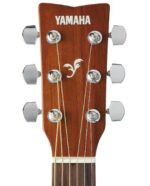While playing the guitar can be a highly rewarding experience with numerous benefits, like any skill or hobby, it also has its drawbacks. It’s important to understand some of the challenges and potential disadvantages that come with learning and playing the guitar:

1. Initial Learning Curve
The guitar can be quite difficult for beginners. It takes time and patience to learn basic chords, scales, and proper hand positioning. For those expecting immediate results, the initial learning phase can be frustrating, especially when progress feels slow.
2. Physical Discomfort
For new players, there can be physical discomfort involved in learning to play. Sore fingers from pressing down on the strings are common, especially with steel-stringed acoustic guitars. Over time, calluses form, but until then, playing can be painful. Additionally, the repetitive motions can cause strain on the wrists, shoulders, or back if proper posture isn’t maintained.
3. Cost of Quality Gear
While entry-level guitars are affordable, high-quality guitars, amps, pedals, and other gear can get expensive. For players looking to improve their sound or transition to professional performance levels, the financial investment can be significant. Constant upgrades and maintenance, like changing strings or tuning, can also add to the ongoing cost.
4. Time-Consuming Practice
Mastering the guitar requires consistent practice. Busy individuals may struggle to find time in their schedules to practice daily or maintain the discipline required to reach advanced levels. Without regular practice, progress can stall, leading to frustration or loss of motivation.
5. Physical Limitations
Some individuals may find it difficult to play the guitar due to physical limitations, such as small hands, limited finger mobility, or conditions like arthritis. These issues can make it harder to stretch fingers across the fretboard, form chords, or maintain playing for long periods without discomfort.
6. Lack of Immediate Reward
Learning the guitar is not something that provides instant gratification. It takes time to get good enough to play songs fluently or confidently perform in front of others. This can deter beginners, who might feel they aren’t progressing fast enough and may lose interest before they reach a level where playing becomes enjoyable.
7. Equipment Maintenance
Guitars require regular maintenance to keep them in good playing condition. This includes changing strings, tuning, cleaning, and adjusting the neck. Additionally, more complex repairs, such as fixing a warped neck or fretwork, might require professional help, adding to the overall cost and effort.
8. Noise Level
Depending on the guitar type and living situation, playing guitar can generate noise that disturbs others. Acoustic guitars can be loud in small spaces, and electric guitars played through amplifiers can disrupt neighbors or housemates if played at high volumes, especially when practicing for extended periods.
9. Difficult to Self-Teach
While there are countless online resources, books, and tutorials available, learning to play guitar without a teacher can be challenging. Without proper guidance, beginners can develop bad habits that hinder progress in the long run. Having a good teacher can be expensive or hard to find for those in remote areas, leaving many to struggle on their own.

10. Competition and Pressure in the Industry
For those aspiring to be professional guitarists, the music industry is highly competitive. Standing out among countless talented players requires exceptional skill, creativity, and sometimes luck. The pressure to constantly improve, evolve your sound, and succeed can be overwhelming for some musicians.
While the guitar has many advantages, such as fostering creativity and providing a sense of accomplishment, it’s not without its challenges. However, for those who remain dedicated and are willing to work through these disadvantages, the rewards of playing guitar far outweigh the drawbacks. Understanding the challenges ahead of time allows aspiring guitarists to prepare for a more realistic learning journey.







Great article! You’ve really highlighted some of the key challenges that come with playing guitar. I’ve definitely experienced the physical discomfort, especially in the beginning—those sore fingers are no joke! And I agree with the time commitment; it’s easy to get frustrated when progress feels slow. But it’s all worth it in the end when you start getting the hang of it. I’ve also realized how important it is to keep up with guitar parts maintenance, like changing strings and adjusting the neck, to keep everything in top shape. It’s a journey, but totally worth it for those who stick with it!
Thank you so much for your kind words! 😊 I’m glad the article resonated with you and that you could relate to some of the challenges. Those sore fingers really are a rite of passage, aren’t they? It’s amazing how much resilience and patience playing guitar requires, but like you said, it’s so rewarding once things start clicking. Keeping up with maintenance is definitely a big part of the journey too! Little things like changing strings and adjusting the neck can make such a difference in playability and sound. I love hearing about your experiences—keep rocking, and enjoy every step of the journey! 🎸💪💪💪